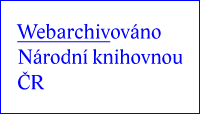Editorial 2018/1

Michal Lorenz and Eva Víchová from the Institute of Information Studies and Librarianship of the Philosophical Faculty of the Masaryk University in Brno reflect upon the concept of the community library. They are looking at the meaning and contents of this expression with regard to the continuation and further development of libraries as community institutions. Among others the study points out the need for the design of services to marginalised and non-administered communities including library non-users. The authors see their study as a contribution to the classification of the types of communities and the introduction of an overall model of social innovations in adequately conceived community services.
In the section Libraries and information at home and abroad we shall find the article by Anna Pajerská (the Library of the Palacký University in Olomouc) and Jindra Planková (the Institute of Information Science of the Philosophical and Natural Science Faculty of the Silesian University in Opava) under the title information Commons (IC) – principles and components in Czech libraries. This English term, which has not found a suitable Czech rendering, is mostly used by in its original English. The authors show the IC as a possible startup conceptual model with which to approach the development of information services in libraries to satisfy expectations of both present and future library users especially with regard to the dynamic development of ICT (the need to approach the internal setup of libraries as well as the call for widening the technological assistance as an integral part of library services). Some parts of the IC concept are used by intuition – the study therefore looks in detail at the concept itself, its possibilities and examples of its realization abroad and, as a home grown example, analyse the practice of the Library of the Palacký University in Olomouc.
Vít Richter (the Institute of Librarianship of the National Library of the Czech Republic) looks at the relationship between reading and school results among pupils and students at the primary and secondary schools basing his conclusions on the results of a nationwide enquiry called Czech children and youth as readers. It was a quantitative questionnaire survey during which 2000 children aged 6 – 19 were approached. The results confirmed that a correlation between reading and school performance exists (good and active reading practice facilitates success in studying even though there are other factors that play a part here); one of the subjects looked at was also the use of the public library).
The director, builder, educator and bibliographer – doc. PhDr Jaromír Kubíček, CSc., celebrated, at the beginning of 2018, his milestone anniversary. An interview with the director emeritus of the Moravian Library was conducted by Eva Svobodová and the editorial board of this journal would like to take this opportunity to congratulate Jaromír Kubíček, to thank him for his cooperation with our journal and wish him many happy years of active and healthy life.
We bring reviews of three specialized publications by Czech authors: Czech printing between late Gothic and Renaissance II (Petr Voit), Jan Felkl and Son: the globe factory (Eva Novotná) and the Organisation of knowledge: key themes (Helena Kučerová).
The section News of foreign library science literature selects this time articles from the Scandinavian Public Library Quarterly (SPLQ, now SLQ), bringing contributions in English from Norway, Sweden, Finland and Denmark. This periodical switched several years ago from a paper format to an electronic version and at the same time made accessible its complete archive (1968 – 2016). (http://siq.nu/.
Unfortunately, there can also be some sad moments in the editorial work; when the author passes away in the middle of the publishing process, as it happened in the case of ing. Jaroslav Šilhánek, CSc, the coryphe of our chemical informatics, it is very sad and it makes us to reflect. When someone who has so much to say and is not able to finish the work for which others are waiting...how much time do we have left for publishing?
I wish you a beautiful summer, many new experiences that you can share with us on our pages either in Knihovna plus (submission deadline 1. 8. 2018 or Knihovna: knihovnická revue (submission deadline for reviewed contributions 15. 8. 2018 or non-reviewed 1. 9. 2018).
Thank you for your patronage, we look forward to further cooperation.
For the Editorial Board
Renata Salátová
Acting Editor









